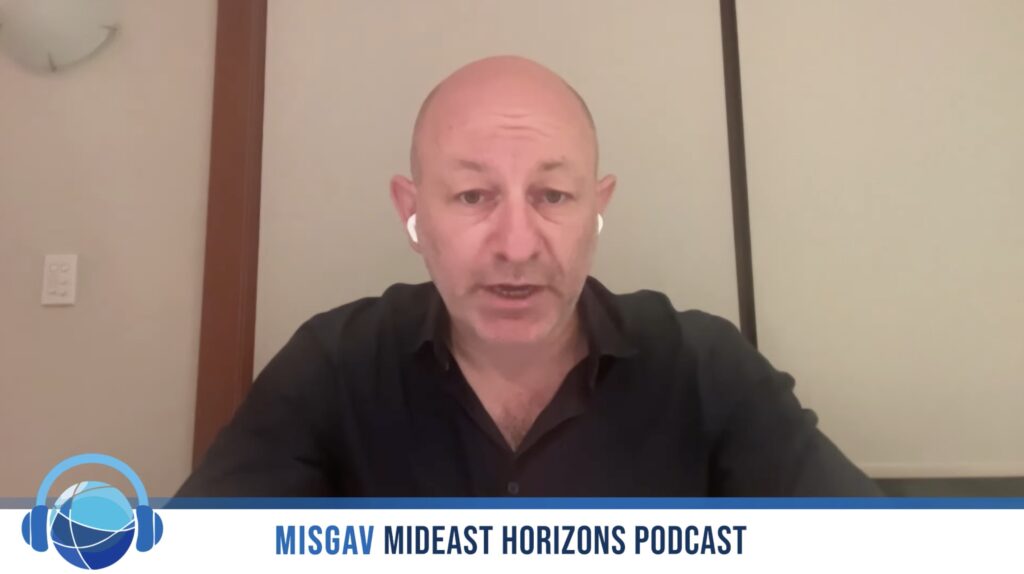IN THE MEDIA
AIJAC’s Ahron Shapiro on ABC NewsRadio: ‘Personal security’ concerns motivated voters
November 2, 2022 | Ahron Shapiro

AIJAC Senior Policy Analyst Ahron Shapiro discusses the early Israeli election returns and the reasons behind Binyamin Netanyahu’s likely victory with Glen Bartholomew on ABC NewsRadio.
Glen Bartholomew: Ahron Shapiro is the senior policy analyst with the Australia/Israel & Jewish Affairs Council. He’s been watching the political merry-go-round in the last few years. Ahron, good afternoon to you. Another day, another election in Israel. Just about 5% or so votes have been counted, but the right does appear to be in the ascendancy. What do you make of where things stand?
Ahron Shapiro: Yes, well, I’d have to agree, Glen, even though there are some scenarios where the count could go another way, and that’s always a factor, that Israeli elections are hand counted, of course, and the ballot boxes from our Arab communities will make a big difference in this election because there’s one party that’s very close to getting in on the Arab side that could actually bring the coalition numbers to 60/60, which would complicate things yet again. But we can say that the chances are much greater than Netanyahu will come out ahead in this.
Yair Lapid always had a tough go at this because the party on the right wing that crossed the aisle to make the unity government, what they call the Government of Change, that was Naftali Bennett’s Yamina, it completely disintegrated. He only had six seats with him and it is assumed from the polling before the election that those were distributed to right-wing parties that ally with Netanyahu, whether they be the ultra-Orthodox or the National Religious.
Those seats weren’t available to make a new government, so basically Yair Lapid was stuck saying to everyone he’s calling a win depriving Netanyahu of a win and forcing a sixth election, but that wasn’t really something to really excite voters about.
Glen Bartholomew: Alright. It said that the surging support for the ultra-nationalist religious Zionism bloc really did galvanise the campaign. How has a far-right party, seen as racist and extremists, risen from a fringe to become the third largest party and the potential coalition kingmaker?
Ahron Shapiro: Well, I’ve written about this, you know, Israel has been undergoing, really, a wave of Palestinian violence and clashes, with Israelis and Palestinians and deaths on the Israeli side, civilian and military personnel, that is the highest in seven years. And this always works to the advantage of the right-wing. It moves right-wing voters a bit further to the right, temporarily, until the terrorism stops, and then we’ve seen in history that everything sort of balances itself right back out again. But it moves those Likud voters, let’s say, on the right, further to the right, and it moves some of the people in the centre to the right. So this isn’t a big surprise.
You know, Yediot Ahronot is the largest newspaper in Israel commercially, and the day before the election, it had a front-page story calling attention to the terror wave. And that can’t go well for the government. Their top columnist, Nahum Barnea, who’s not a friend of the right-wing, he was lamenting that in the 1988 election, it [was] decided for the Likud because there was a terrorist attack right before the election. Here we’ve had two terror attacks in the three days before the election. This was always going to be tough for Yair Lapid.
Glen Bartholomew: Alright. So, in the meantime, we could see Itamar Ben-Gvir soon be a cabinet minister, someone who’s been convicted, what, about eight times for crimes of incitement against Arab Israelis. What is the public been making of all of this, there’s so many elections in so many years, what was the turnout like, and how much might frustration be behind some people’s votes?
Ahron Shapiro: Yes, I think there is the frustration. I think the fact that only Netanyahu really had a credible path to a government probably was making some people think about that. The whole thing with Itamar Ben-Gvir is a very serious issue, but I think what we heard and what we saw in the Hebrew media, were the voices of people who said we don’t like Itamar Ben-Gvir, but he’s sort of what we’re saddled with…we’ve looked at failed defence officials, whether it be, they didn’t like how Benny Gantz had handled the security in the country and also Omer Bar-Lev, the police commissioner [Minister of Public Security]. They didn’t find personal security in months, and also going back even a year to May 2021, there were these riots between Arabs and Jews in Israel that cost lives of some Jews and some Arabs, and this was upsetting a lot of people and, yeah, they wanted change and they were willing to hold their noses and overlook a lot of things to get it.
Glen Bartholomew: Meanwhile, Mr Netanyahu is still facing trial on corruption charges, charges he denies, of course. It’s never dull in Israeli politics. We better stay in touch, Ahron, thanks very much.
Ahron Shapiro: Glen, just one last thing: Netanyahu, historically, he goes to the right, he gives them the ‘head fake’ and then he tries to form a government with a little more centrist parties. He’ll be trying to do that again. I don’t know if he’ll succeed.





